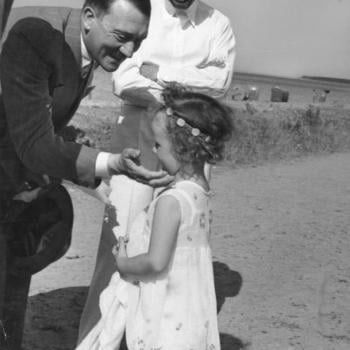My Response to the Southern Baptist Statement “Truth, Trust, and Testimony In A Time of Tension” (A Statement from the Calvinism Advisory Committee)
First, you should read the statement at http://bpnews.net/BPnews.asp?ID=40419 . If you don’t read the statement first, much of what I say will not make sense to you. (Of course, it might not even if you do read the statement, but that’s a given…a given that you might just disagree with me about basic matters of perspective or think my writing is bad.)
I am pleasantly surprised at the overall irenic tone of this statement. It is a step away from division between Calvinists and “non-Calvinists” in the SBC and toward unity between them.
I am also surprised that some of the framers and signers could endorse some parts of the statement as it contains fairly harsh language about those within the SBC who push Calvinism very hard. “Neither those insisting that Calvinism should dominate Southern Baptist identity nor those who call for its elimination should set the course for our life together.” (Frankly, I don’t know of anyone with any influence in the SBC who thinks Calvinism should be “eliminated.”) I pray all parties in the debate take that to heart.
I should lay all my cards on the table here and admit that I am not a Southern Baptist and never have been one. I almost became one, temporarily, when I lived in Munich, Germany in the early 1980s. My wife and I attended a Southern Baptist church there. I was allowed to fill the pulpit when the pastor was away and to teach the men’s Sunday School class. However, when I applied for membership (having been a member of Baptist churches before and being a graduate of a Baptist seminary) I was turned down. The deacons explained that I had only “alien immersion” and would have to be re-baptized (their language, not mine) to become a member. (I was baptized as a believer upon confession of faith in the Lord Jesus Christ in a trinitarian Pentecostal church.) I declined and so never became a Southern Baptist. The church where I now hold membership is a member of the Waco Baptist Association, the Baptist General Convention of Texas and the Cooperative Baptist Fellowship but not the Southern Baptist Convention. However, many of my students are Southern Baptists and so I keep a close eye on what is happening there. I’m also an observer of and commentator on American evangelicalism and I consider the SBC part of that.
The statement calls for several things including that both Calvinists and non-Calvinists “be fully candid and forthcoming about all matters of faith and doctrine” when they become candidates for ministry positions in local churches. That would be refreshing. I am constantly hearing of young Calvinists becoming pastors of Southern Baptist churches without revealing their Calvinism and then insisting on Calvinism for lay leaders in the church. Numerous SBC churches have split over this in the past decade.
The only thing that really bothers me about the statement is the strongly creedal tone. The 2000 Baptist Faith and Message is treated as a litmus test of doctrinal truth. Scripture is said to be above it, but the BFM is treated as ultimate, final and absolute as a comprehensive test of doctrinal accountability and faithfulness. There is no room left for faithful Baptist dissent. That leaves the BFM as incorrigible and thus practically (for all practical purposes) infallible.
Of course, I don’t endorse everything the statement says, but the overall tone and thrust of the statement is encouraging. I just happen to think that SOME of its affirmations—such as that “God loves everyone and desires to save everyone”—are inconsistent with Calvinism and no consistent Calvinist could affirm them. I cannot imagine one affirming them without crossing his or her fingers.
One question that comes to mind is how this statement relates to the common Calvinist practice of misrepresenting non-Calvinist/Arminian beliefs. The statement strongly criticizes divisive practices by either side, but I have been aware of blatant misrepresentations of Arminianism by Southern Baptist Calvinists. In fact, I’d say it is more the rule than the exception.
When I read this statement I want it to be adopted, with proper modifications, by American evangelicals as a whole. Evangelicalism, such as it is, ought to embrace the ethos of this statement—that the gospel is greater than our differences over God’s sovereignty and that we should and can disagree about those without being disagreeable—such as implying that those who disagree with us are somehow less faithful as Christians.















